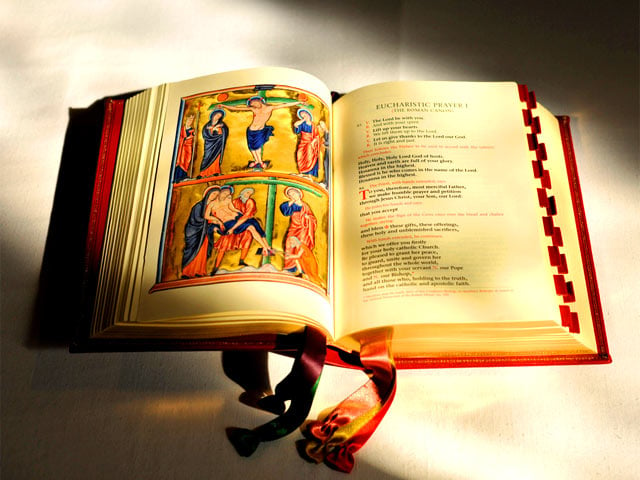- Home
- Our Community
- Our Faith
- Our Ministries
-
Parish Life
- Calendar of Events
- St. Aidan's Video Links
- Parish Blog
- News Archive
- Mass Etiquette and Information
- Ad Orientem News and Facts
- Catholic Links
- Prayers and Announcements
- Luis Dizon Reflections - Archive
- Bulletin
- Contact Us
- Search

Trusting in the Lord (6th Sunday in Ordinary Time)
Click here for this Sunday’s Readings
The prophet Jeremiah lived in the late seventh and sixth centuries BC, around the end of the kingdom of Judah. His lifetime coincided with the rise of the Neo-Babylonian empire, the vassalage of Judah under the Babylonians, and the destruction of Jerusalem by Nebuchadnezzar. As was revealed to Jeremiah, this destruction was God’s punishment on the Jews for their sins, in accordance with the curses in Deuteronomy 28.
A large portion of the book of Jeremiah consists of laments where the prophet bewails the sorry state of his people. It is these laments that earn him the moniker “The Weeping Prophet.” The particular lament found in our Old Testament reading speaks of the tendency of Judah to put their trust in things other than God, and how this results in their downfall.
This lament follows a literary device found in many Biblical passages, which is to contrast between two sets of behaviours. On the one hand is the person who trusts in men rather than God. On the other hand is the person who trusts God wholeheartedly. The passage shows not only the contrasting attitudes of the two men, but the contrasting outcomes of those attitudes as well.
This comes at a critical time in Judah’s history, as they are caught in a war between Babylon and Egypt. They believed that by siding with Egypt, they could cast off the yoke of Babylonian rule. Jeremiah has to warn them that they are sadly mistaken in this assumption, and that this conveys a lack of trust in God.
Instead, they must trust that God has reasons for putting Judah in this position, and allow His plans to play out, knowing that whatever He has in store is good. Those who trust God are described in terms similar to Psalm 1, as well-watered trees who bear much fruit, and do not whither even when the drought comes.
The contrast conveyed by Jeremiah in this reading is echoed by Jesus in His own preaching in our Gospel reading, who uses similar contrasts to flesh out what it means to trust in the Lord (Luke 6:17, 20-26). We can learn from Jeremiah’s warning to Judah as well as Jesus’ preaching that we should trust the Lord under all circumstances, rather than in our own machinations. A plan can only succeed if the Lord blesses it (Psalm 127:1-2), so we must commit our way to the Lord, and trust Him to bring about the best result (Psalm 37:5-7)
J. Luis Dizon
